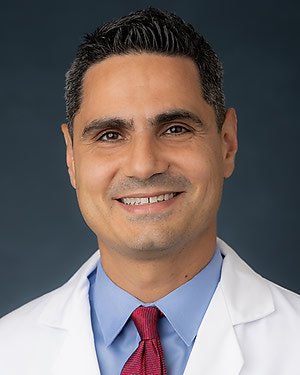The field of diabetes research continues to grow at a rapid and exciting pace. The diabetes team at Johns Hopkins is committed to finding and developing methods to help people live a full and healthy life with diabetes. Over the past 20 years, we have conducted research in a number of important areas, including glucose monitoring, hemoglobin A1c, and diabetes technologies such as continuous glucose monitoring and implantable insulin pump therapy. All of these efforts are made possible with the help of volunteers, who by participating in these studies help us answer important questions about diabetes. Below is a list of the current research taking place at the Diabetes Center. If you would like to participate in one of our studies, please contact the research program coordinator listed for each study for more information.
Studies
-
Sponsors: NIH/NIDDK (National Institute of Diabetes, Digestive and Kidney Diseases)
Qualifications: No new patients are being enrolled in this study
Person to Contact: Tracy Whittington: 410-583-2721The Diabetes Prevention Program (DPP) was a research study aimed at discovering whether diet/exercise or the oral diabetes medication Metformin (Glucophage) could prevent or delay the onset of type 2 diabetes in people with impaired glucose tolerance (IGT) or pre-diabetes. This study was conducted in many centers across North America; Dr. Sherita Golden is the principal investigator for the Johns Hopkins site.
The DPP found that over the 3 years of the study, diet and exercise sharply reduced the chances that a person with IGT would develop diabetes, in fact by 58%. Metformin also reduced the risk by 31%. The DPP research findings are published in the New England Journal of Medicine February 7, 2002 issue. If you are interested in more information about this study please contact Tracy Whittington at 410-583-2721.
-
Title Type 1 Diabetes TrialNet: Pathway to Prevention Study
Description: Type 1 diabetes is an autoimmune disease in which the immune system attacks and destroys the cells in the body that produce insulin. The rate of type 1 diabetes is rising worldwide with the greatest increase in children younger than age five. Johns Hopkins through TrialNet is working to delay or prevent diabetes in people at risk for developing type 1 diabetes. We are currently screening relatives of persons with type 1 diabetes to determine if they are at risk for developing diabetes. Relatives have about a 5% chance of testing positive for autoantibodies associated with type 1 diabetes.
Eligibility: Those eligible to be screened to determine the risk of developing type 1 diabetes need to be: Aged 1 to 45 years and a sibling, offspring, or parent of an individual with type 1 diabetesOR
Aged 1 to 20 years and a niece, nephew, aunt, uncle, grandchild, cousin, or half sibling of an individual with type 1 diabetes*
**Note: Your relative that has diabetes probably has type 1 diabetes if they were diagnosed before age 40 AND started on insulin within the first year of diagnosis.**
Procedures: Screening for autoantibodies involves a simple blood draw (about the amount of a tablespoon). The blood will be tested for the presence of three autoantibodies: GAD 65A, IA-2A and mIAA (insulin autoantibodies) which can appear up to ten years before type 1 diabetes develops. If results are found positive we will offer additional screening tests under a separate consent.
Cost: There is no cost for the test and parking (in a Johns Hopkins garage) will be free the day of your visit.
Contact: If you are interested in having either you or your child screened please review the screening forms and contact Daniella Angus, TrialNet Research Study Coordinator at 410-614-0905 or by e-mailing Daniella Angus at doluka1@jhmi.edu to discuss any questions you may have and to schedule a screening appointment.
-
-
NA_00073075 Thomas Donner, MD
TrialNet public website at http://trialnet.org
Research Team
Screening Forms
- Consent
- Assent (Children ages 7-11)
- Screening Form
- Family History Form


